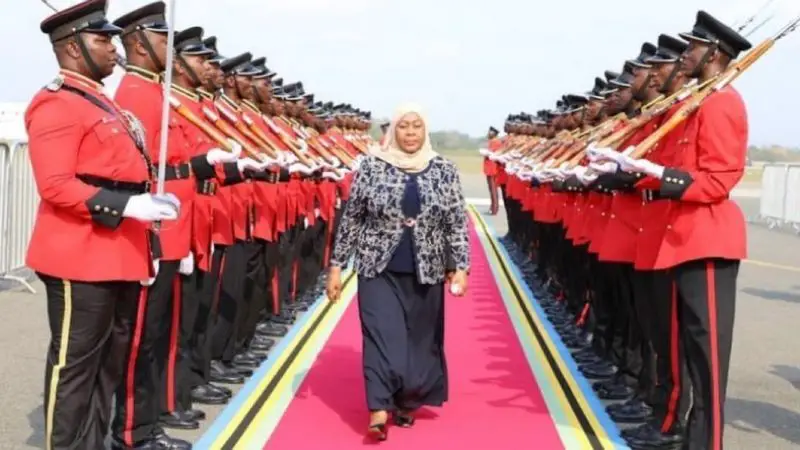On Friday, December, 9, Tanzanians will not have a chance to assemble at the national stadium to see army parade and display of Tanzania Peoples Defence Force might as has been the norm on Independence day celebrations.
President Samia Suluhu Hassan has instead directed the money meant to organise colourful ceremony be diverted to construct eight domitories for children with special needs.
A total of U$445,000 had been planned for the 61st Independence Day event but the money will be used to build eight dormitories in primary schools around the country.
George Simbachawene Tanzania’s minister of state said Tanzania will celebrate Independence Day by having public dialogues on development.
In 2015, then-President John Magufuli cancelled celebrations and diverted funds towards the building of a road in the commercial capital, Dar es Salaam.
In 2020, he did the same and directed that the budget be used to buy medical facilities.
Tanganyika formally achieved its independence from United Nations trusteeship under British administration and became a member of the Commonwealth of Nations (CON) on December 9, 1961.
On December 10, 1963, Zanzibar achieved independence as a member of the Commonwealth.
The United Republic
Zanzibar and the mainland have had a close relationship that dates back to several centuries before the Common Era.
Although both were administered separately during colonial rule, Africans from the mainland traveled to Zanzibar for employment, and many who did so settled in the islands permanently.
At times during the struggles for national independence, TANU in Tanganyika and the ASP in Zanzibar worked together.
The decision of the two countries to amalgamate was a natural outcome of many years of close relationship between the people of Zanzibar and the mainland.
On April 26, 1964, the two countries merged to form the United Republic of Tanganyika and Zanzibar, with Nyerere as president and Karume as first vice president.
The nascent country was renamed the United Republic of Tanzania in October 1964.
Despite unification, for years Zanzibar continued to pursue its own policies, paying little attention to mainland practices.



















